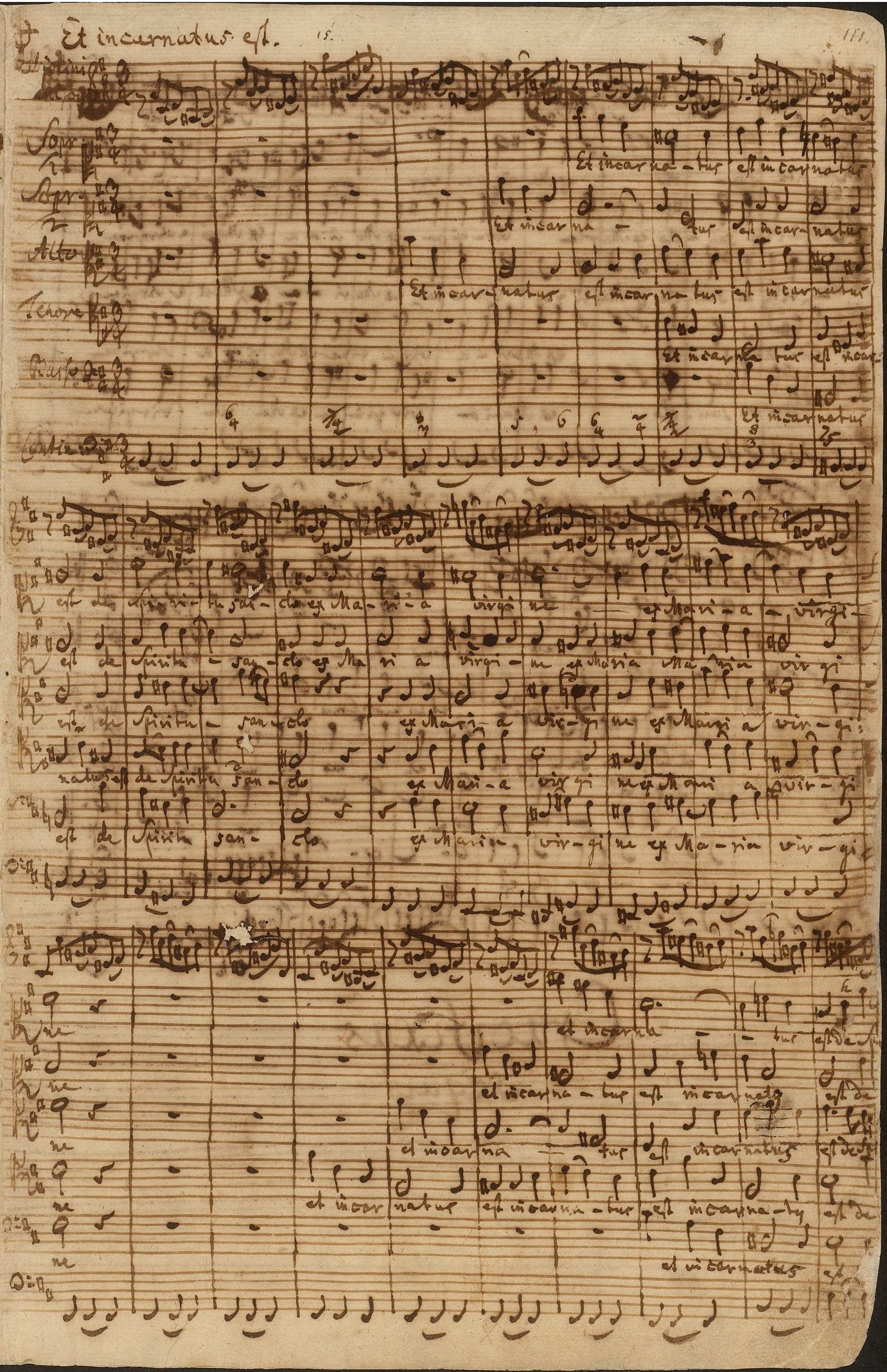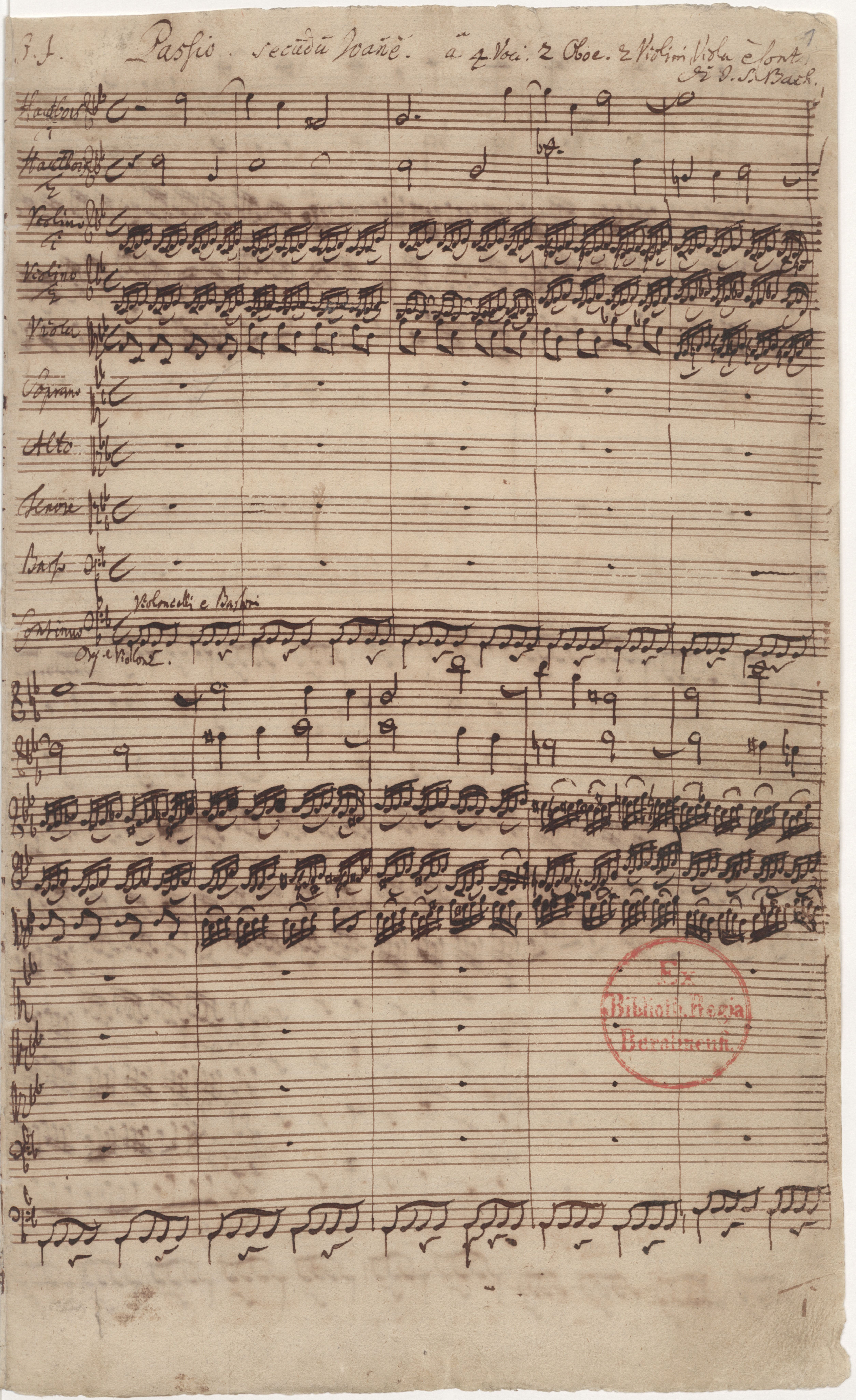|
Helmut Kahlhöfer
Helmut Kahlhöfer (25 July 1914 – 12 April 1988) was a German church musician and academic teacher. He was the founder and for decades the conductor of the choir Kantorei Barmen-Gemarke. Life and career Born in Barmen (now part of Wuppertal), Kahlhöfer studied Protestant church music at the Musikhochschule Köln, organ with Heinrich Boell and Michael Schneider, piano with Karl Hermann Pillnay, and choral conducting with . Kahlhöfer graduated in 1937 with the A-Examen and the concert exam for organ. He worked as a church musician (''Kantor'') in Cologne from 1937 to the beginning of World War II. He then continued his studies at the Salzburg Mozarteum, conducting with Clemens Krauss and piano with Walter Lampe. Kahlhöfer worked in Wuppertal from 1945. In 1946 he became Kantor of the Reformed Immanuelskirche in Barmen-Gemarke and founded there in 1946 the choir Kantorei Barmen-Gemarke which he conducted to 1986. He worked also from 1950 to 1960 as a lecturer for organ at the ... [...More Info...] [...Related Items...] OR: [Wikipedia] [Google] [Baidu] |
Barmen
Barmen is a former industrial metropolis of the region of Bergisches Land, Germany, which merged with four other towns in 1929 to form the city of Wuppertal. Barmen, together with the neighbouring town of Elberfeld founded the first electric suspended monorail tramway system, the Schwebebahn ''floating tram''. History Barmen was a pioneering centre for both the early industrial revolution on the European mainland, and for the socialist movement and its theory. It was the location of one of the first concentration camps in Nazi Germany, KZ Wuppertal-Barmen, later better known as Kemna concentration camp. Oberbarmen (Upper Barmen) is the eastern part of Barmen, and Unterbarmen (Lower Barmen) the western part. One of its claims to fame is the fact that Friedrich Engels, co-author of ''The Communist Manifesto'', was born in Barmen. Another of its claims is the fact that Bayer AG was founded there by Friedrich Bayer and master dyer Johann Friedrich Weskott with the express pur ... [...More Info...] [...Related Items...] OR: [Wikipedia] [Google] [Baidu] |
Motets (Bach)
It is uncertain how many motets Johann Sebastian Bach composed, because some have been lost, and there are some doubtful attributions among the surviving ones associated with him. There is a case for regarding the six motets catalogued BWV 225–230 as being authenticated, although there is some doubt about one of them, ''Lobet den Herrn, alle Heiden''. A seventh motet, ''Ich lasse dich nicht'', BWV Anh. 159, which was formerly attributed to Bach's older cousin Johann Christoph Bach, appears to be at least partly by J.S. Bach, and if so was probably composed during his Weimar period. BWV 228 is another motet which appears to have been written at Weimar, between 1708 and 1717, the others having been composed in Leipzig. Several of the motets were written for funerals. There is some uncertainty as to the extent that motets would have been called for in normal church services—there is evidence that the form was considered archaic. The text of ''Jauchzet dem Herrn, alle Welt'', ... [...More Info...] [...Related Items...] OR: [Wikipedia] [Google] [Baidu] |
Verband Deutscher Konzertchöre
The Verband Deutscher KonzertChöre (VDKC, Association of German Concert Choirs) is a national association with seven state organisations. It represents more than 550 member choirs with more than 30,400 singers. It is a non-profit organisation, which based in Neuss. The members are concert choirs, oratorio choirs and chamber choirs who perform concerts of high quality, in genres such as Gregorian Chant, Baroque cantata, romantic period motet, contemporary oratorio and choral gospel music. History The association was founded in 1921 as ''Schutzverband Deutscher Konzertgebender Vereine''. It was renamed in 1925 as ''Reichsverband der gemischten Chöre Deutschlands''. It was newly founded after World War II as ''Verband gemischter Chöre Deutschlands'', renamed in 1956 as ''Verband Deutscher Oratorien- und Kammerchöre''. After the reunification of German, a common national organisation was formed, labelled ''Verband Deutscher KonzertChöre''. The national office is in Weimar, led f ... [...More Info...] [...Related Items...] OR: [Wikipedia] [Google] [Baidu] |
Krefeld
Krefeld ( , ; li, Krieëvel ), also spelled Crefeld until 1925 (though the spelling was still being used in British papers throughout the Second World War), is a city in North Rhine-Westphalia, Germany. It is located northwest of Düsseldorf, its center lying just a few kilometers to the west of the river Rhine; the borough of Uerdingen is situated directly on the Rhine. Because of its economic past, Krefeld is often referred to as the "Velvet and Silk City". It is accessed by the autobahns A57 (Cologne– Nijmegen) and A44 (Aachen–Düsseldorf– Dortmund–Kassel). Krefeld's residents now speak ', or standard German, but the native dialect is a Low Franconian variety, sometimes locally called ', ', ', or sometimes simply '. The Uerdingen line isogloss, separating general dialectical areas in Germany and neighboring Germanic-speaking countries, runs through and is named after Krefeld's Uerdingen district, originally an independent municipality. History Early history Records ... [...More Info...] [...Related Items...] OR: [Wikipedia] [Google] [Baidu] |
Kirchenmusikdirektor
Kirchenmusikdirektor (KMD, director of church music) is a German title for professional church musicians (' who have responsibility for not only a parish but a larger region, in both Protestant and Catholic church music. The title is also sometimes awarded for long-term merits for church music. Depending on the organisation, different qualifications are required for the title. The leading church musician within a Protestant ''Landeskirche'' is usually called '' Landeskirchenmusikdirektor'' (state church music director), responsible for all church music within that region, and also for contact to church music education in a state. In Catholic dioceses, the equivalent title is ''Diözesankirchenmusikdirektor'' (DKMD). References Titles Honorary titles German church music {{Germany-stub ... [...More Info...] [...Related Items...] OR: [Wikipedia] [Google] [Baidu] |
Andreas Schmidt (baritone)
Andreas Schmidt (born 30 June 1960 in Düsseldorf) is a German classical bass-baritone in opera and concert. Career Andreas Schmidt studied church music with his father Hartmut Schmidt and singing with Ingeborg Reichelt and Dietrich Fischer-Dieskau. His 1984 debut was in the part of Malatesta in Donizetti's ''Don Pasquale'' at the Deutsche Oper Berlin. He became a member of the opera house, appearing in Mozart roles such as Guglielmo in ''Così fan tutte'' or Count Almaviva in ''Le nozze di Figaro'', as Wolfram in Wagner's ''Tannhäuser'', Posa in Verdi's ''Don Carlos'', and Marcello in Puccini's ''La Bohème''. He created there the title role of Wolfgang Rihm's opera ''Oedipus'' in 1987 and the part of Ryuji in Hans Werner Henze's ''Das verratene Meer'' in 1990. He has appeared as a guest at the Hamburger Staatsoper, the Berlin State Opera, the Bavarian State Opera, the Vienna State Opera, the Grand Theátre Genf, the Royal Opera House Covent Garden, the Opéra de Paris, th ... [...More Info...] [...Related Items...] OR: [Wikipedia] [Google] [Baidu] |
Hildegard Laurich
Hildegard Laurich (15 January 1941 – 11 February 2009), was a German classical contralto singer. Professional career Born in Halle, Laurich studied at the Hochschule für Musik Detmold, in Berlin with Hermann Weissenborn, and in private study with Professor Frederick Husler in Cureglia She sang mostly in concert, particularly in works of . In 1974 she sang the alto part in Bach's '' |
Mitsuko Shirai
Mitsuko Shirai (born 28 May 1947) is a Japanese mezzo-soprano and music professor.Alan Blyth, "Mitsuko Shirai", Grove Music Online Biography Born in Nagano, Shirai first trained in Tokyo before settling in Germany, where she completed her vocal studies with Elisabeth Schwarzkopf.Slonimsky and Kuhn, "Shirai, Mitsuko", ''Baker's Biographical Dictionary of Musicians'', Centennial Edition, Volume 5, page 3311 Between 1973 and 1976, she took prizes in competitions at Vienna, Zwickau, 's-Hertogenbosch, Athens, and Munich. She made her recital début in Tokyo in 1975, her European début in Amsterdam the following year. In 1989 she made her New York début at Carnegie Hall, in Ravel's '' Shéhérazade. In 1973 Shirai formed a duo with the pianist Hartmut Höll. The pair have toured extensively, performing repertory from Scarlatti to the complete vocal works of Anton Webern, and have given masterclasses in Europe, the USA and Israel. In 1997 the two were awarded the ABC International ... [...More Info...] [...Related Items...] OR: [Wikipedia] [Google] [Baidu] |
Mass In B Minor
The Mass in B minor (), BWV 232, is an extended setting of the Mass ordinary by Johann Sebastian Bach. The composition was completed in 1749, the year before the composer's death, and was to a large extent based on earlier work, such as a Sanctus Bach had composed in 1724. Sections that were specifically composed to complete the Mass in the late 1740s include the "Et incarnatus est" part of the Credo. As usual for its time, the composition is formatted as a Neapolitan mass, consisting of a succession of choral movements with a broad orchestral accompaniment, and sections in which a more limited group of instrumentalists accompanies one or more vocal soloists. Among the more unusual characteristics of the composition is its scale: a total performance time of around two hours, [...More Info...] [...Related Items...] OR: [Wikipedia] [Google] [Baidu] |
St John Passion
The ''Passio secundum Joannem'' or ''St John Passion'' (german: Johannes-Passion, link=no), BWV 245, is a Passion or oratorio by Johann Sebastian Bach, the older of the surviving Passions by Bach. It was written during his first year as director of church music in Leipzig and was first performed on April 7, 1724, at Good Friday Vespers at the St. Nicholas Church. The structure of the work falls in two halves, intended to flank a sermon. The anonymous libretto draws on existing works (notably by Barthold Heinrich Brockes) and is compiled from recitatives and choruses narrating the Passion of Christ as told in the Gospel of John, ariosos and arias reflecting on the action, and chorales using hymn tunes and texts familiar to a congregation of Bach's contemporaries. Compared with the ''St Matthew Passion'', the ''St John Passion'' has been described as more extravagant, with an expressive immediacy, at times more unbridled and less "finished". The work is most often heard toda ... [...More Info...] [...Related Items...] OR: [Wikipedia] [Google] [Baidu] |
St Matthew Passion
The ''St Matthew Passion'' (german: Matthäus-Passion, links=-no), BWV 244, is a '' Passion'', a sacred oratorio written by Johann Sebastian Bach in 1727 for solo voices, double choir and double orchestra, with libretto by Picander. It sets the 26th and 27th chapters of the Gospel of Matthew (in the Luther Bible) to music, with interspersed chorales and arias. It is widely regarded as one of the greatest masterpieces of Baroque sacred music. The original Latin title translates to "The Passion of our Lord J susC[hrist">rist.html" ;"title="susC[hrist">susC[hristaccording to the Evangelist Matthew".Markus Rathey. 2016. ''Bach's Major Vocal Works. Music, Drama, Liturgy'', Yale University Press History The ''St Matthew Passion'' is the second of two Passion settings by Bach that have survived in their entirety, the first being the '' St John Passion'', first performed in 1724. Versions and contemporaneous performances Little is known with certainty about the creation proc ... [...More Info...] [...Related Items...] OR: [Wikipedia] [Google] [Baidu] |
Deutsche Bachsolisten
Deutsche Bachsolisten (DBS) (The German Bach Soloists) is a German Baroque chamber orchestra dedicated to the works of J.S. Bach Johann Sebastian Bach (28 July 1750) was a German composer and musician of the late Baroque period. He is known for his orchestral music such as the ''Brandenburg Concertos''; instrumental compositions such as the Cello Suites; keyboard wor .... It was established by German conductor and oboist, Helmut Winschermann in 1960. ReferencesBachsolisten 1973 photo, on Southern Africa tour organised by Hans Adler. German orchestras Bach orchestras Musical groups established in 1960 1960 establishments in Germany {{orchestra-stub ... [...More Info...] [...Related Items...] OR: [Wikipedia] [Google] [Baidu] |
.jpg)


